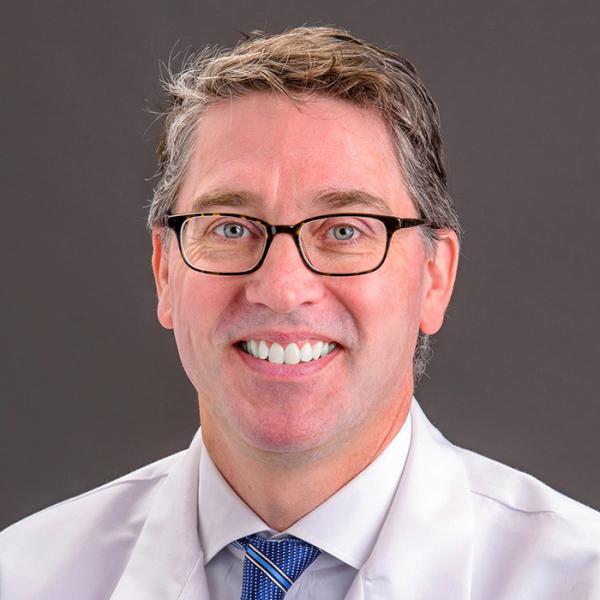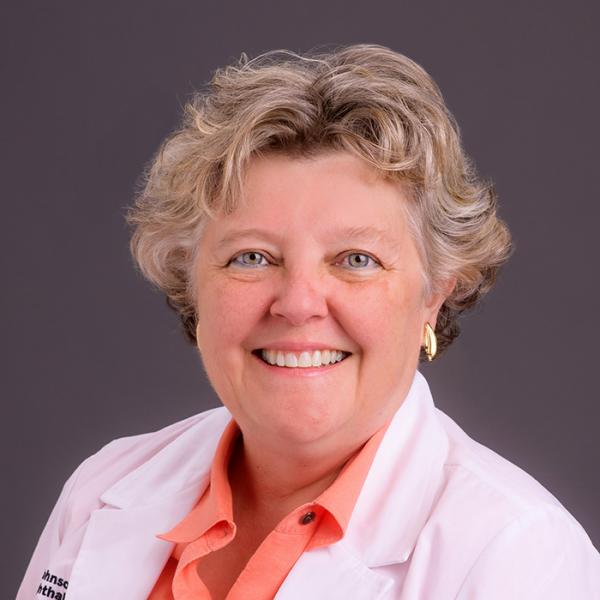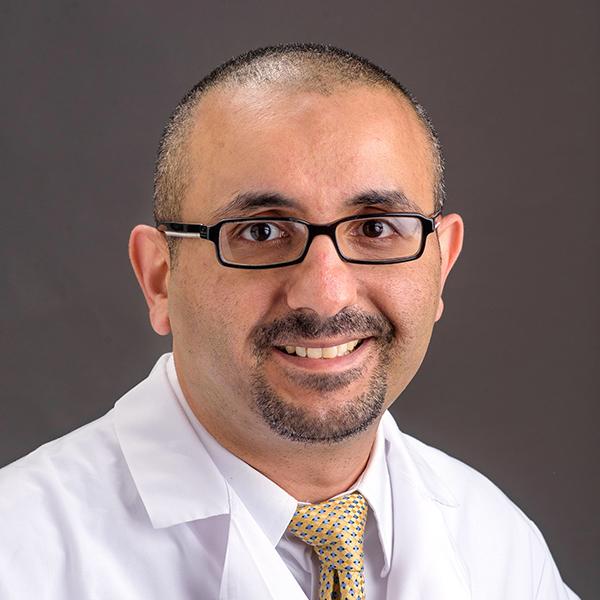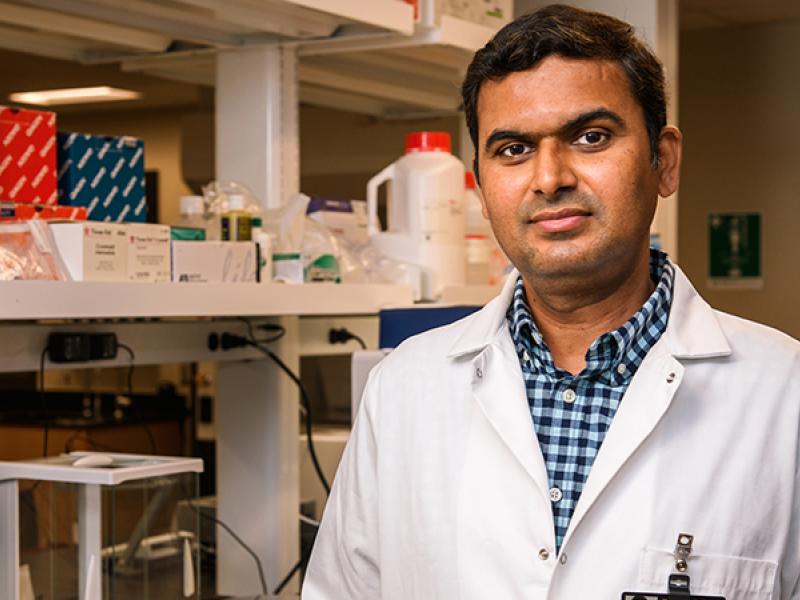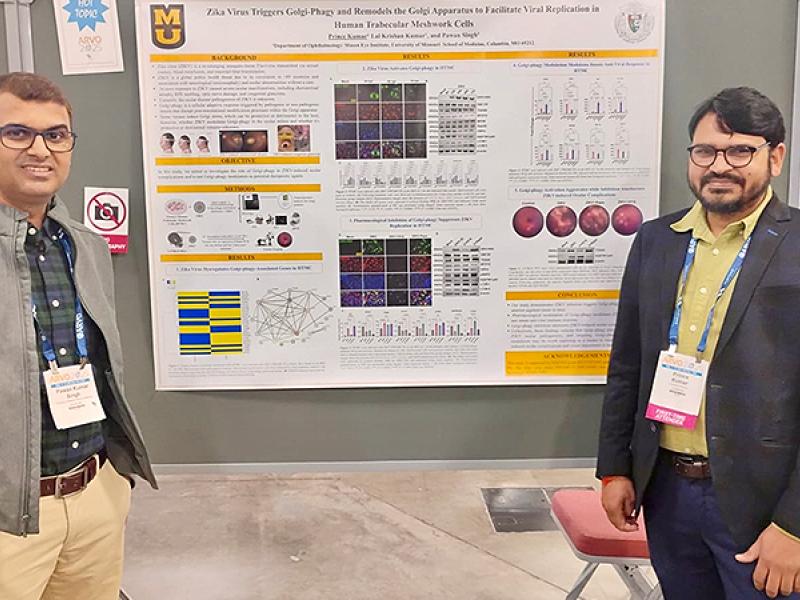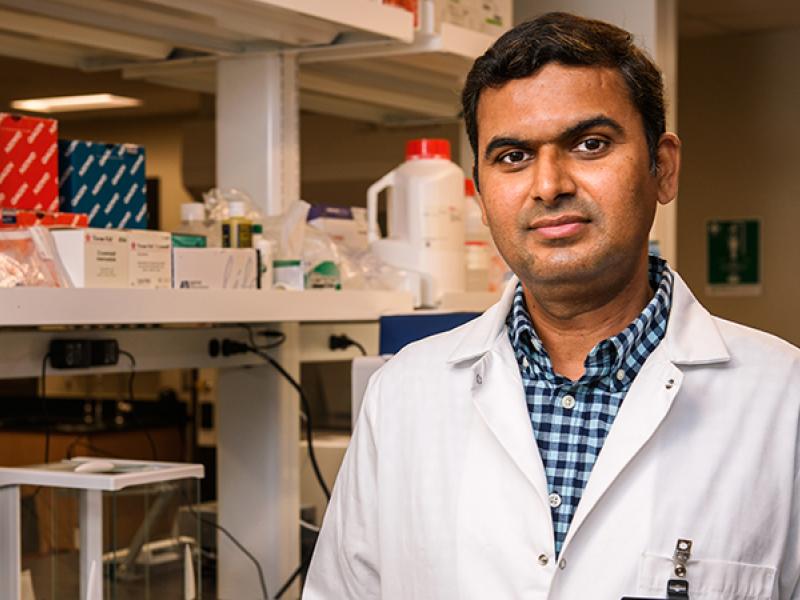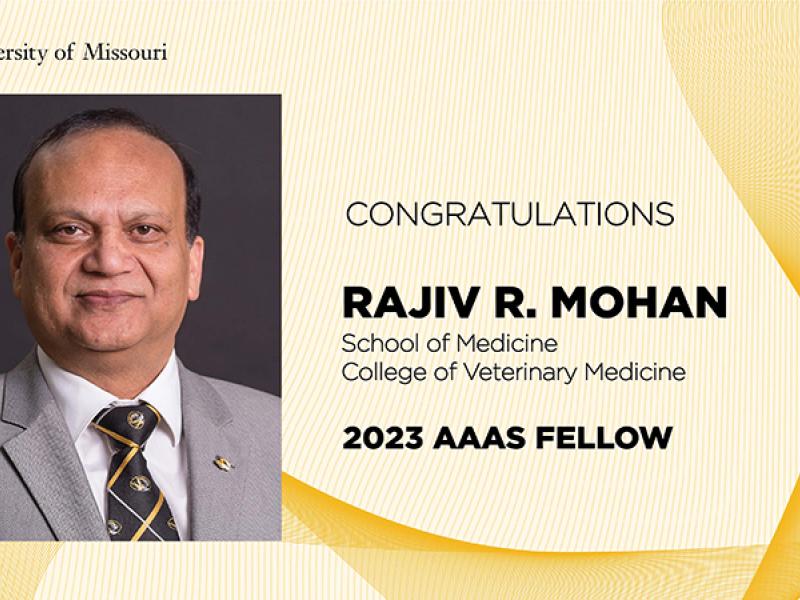The University of Missouri/Mason Eye Institute is proud to offer three fellowships in vitreoretinal disease and surgery, glaucoma and anterior segment surgery, and cornea, external disease, and refractive surgery.
Vitreoretinal Diseases and Surgery
We offer an exceptional two-year, AUPO-certified fellowship in Vitreoretinal Diseases and Surgery to one candidate every 2 years. The fellow will receive robust medical and surgical experience in the state-of-the-art facilities at the University of Missouri and the Harry S. Truman Veterans Affairs medical center (HSTVA).
The fellow is directly involved in the education of medical students and ophthalmology residents and will work closely with them in the clinic, operating room, and in didactics. The fellow holds educational conferences twice a month, moderates the Retina Journal clubs (1-2/year), organizes a wet lab annually, and participates in Grand Rounds.
In clinic, the fellow works with Dr. Elkeeb, Dr. Hainsworth, and Dr. Balendiran at the Mason Eye Institute and HSTVA seeing varied pathology that includes acquired adult and pediatric retinal diseases, hereditary retinal diseases, retinopathy of prematurity, posterior segment trauma, and uveitis. The fellow is also expected to learn and perform most clinic procedures. These include macular and peripheral laser photocoagulation, photodynamic therapy, cryopexy, pneumatic retinopexy, and intravitreal injections. The fellow also has the unique opportunity to have autonomy during their continuity clinic one half-day per week, during which they care for their own patients with primarily posterior segment or uveitic conditions. In addition, the fellow may also assist residents with staffing patients in the Emergency Department and inpatient floors, and conducting procedures when need be. Weekly ROP rounds in our NICU are covered by the Retina service every other month, so the fellow will gain ample experience screening, diagnosing, and treating ROP.
The fellowship boasts a significantly above national average operating room surgical volume with 600+ primary cases performed by the fellow during the 2 years. The fellow is trained using state of the art surgical equipment including intraoperative OCT and both the Alcon and Bausch and Lomb vitrectomy platforms. All aspects of vitreoretinal surgery are covered, from scleral buckles (encircling, segmental, radial), both primary and combined with vitrectomy, to modern day small gauge pars plana vitrectomy techniques and endoscopic vitrectomy. Combined surgeries, particularly with the Cornea or Glaucoma service, are performed occasionally and provide additional opportunities for surgical training. New surgical procedures, such as subretinal medication delivery as well as various types of secondary intraocular lens placement are performed routinely within this exceptional training program. The fellow should expect to operate 2-3 days/week from the start of the fellowship. Surgeries are routinely conducted at our ambulatory surgery center, which is conveniently across the street from one of our clinics. Emergency and after-hours cases occasionally occur and are performed at the University Hospital.
The retina service is also involved in both clinical and translational research and the fellow is required to be involved in research early in fellowship. The fellow is expected to participate in scholarly activities that translate into publications, present at regional and national meetings, and present their work at the Department of Ophthalmology Resident and Alumni conference at the end of each academic year. It is encouraged that the fellow also mentor interested residents and medical students in their research endeavors. Extensive mentoring and potential for collaboration is available with our research faculty; Dr. Huang, Dr. Katz, Dr. Whiting, and Dr. Singh whose retina focused basic science research labs are directly above the clinic. There are also opportunities to serve as a sub-investigator on clinical trials being conducted in the department.
The fellowship is an extremely well-rounded training opportunity with very friendly, family-oriented faculty and staff, located in a wonderful Midwestern college town.
Fellowship Specifics
Program facilities
The fellowship occurs at Mason Eye Clinic (two locations within Columbia, 15 minutes apart) as well as the Harry S. Truman Veterans Affairs, located conveniently across the street from the University Hospital. The fellow also participates in performing and treating retinopathy of prematurity at the Woman's and Children's Hospital in Columbia that is connected to the University Hospital. The clinics have state of the art equipment, including optical coherence tomography (both Heidelberg and Zeiss available) with angiography, widefield imaging, widefield fluorescein and ICG angiography, electroretinogram, photodynamic laser, MicroPulse laser, and ultrasound. Most surgical cases take place at Keene Street Medical Center, across the street from Mason Eye Clinic – East. The operating suites at the University and Harry S. Truman Veterans Affairs offer the latest technology with Zeiss Lumera 700 microscopes with ReSight and intraoperative optical coherence tomography.
Stipend/benefits
The University of Missouri School of Medicine follows the PGY scale for salary and has excellent benefits. A $1500 professional allowance is provided, which can be used to purchase study materials, lenses, conference registration/travel, etc. PTO of 15 days for vacation and 5 days for conferences are allotted.
Call
The fellow will serve as primary retina only call, with one-two weekends off per month. A Retina attending will always be present for backup retina call. There is no general ophthalmology call required. The fellow typically covers primary ophthalmology call once a year when the residents take OKAPS. A typical call week would include going in approximately 1-2 times per week for after-hours emergencies.
Requirements
Potential candidates must be on track to complete Ophthalmology residency in good standing by July 1, 2026. They must be able to hold a full, permanent Missouri license. Board-certification by the ABO is not required.
How to apply
SF Match Residency and Fellowship Matching Service
Glaucoma and Anterior Segment Fellowship
The fellowship will encompass a broad exposure to clinical and surgical management of glaucoma and cataracts. The work environment at the Mason Eye Institute is welcoming and family-oriented; Columbia, Missouri is a great mid-sized urban college town, with its own regional airport and about two-hour drive to St. Louis and Kansas City.
The fellow will receive a robust surgical experience with first-hand exposure to the various and the latest Microinvasive Glaucoma Surgery (MIGS) and angle surgery procedures (including iStent, Hydrus, GATT, OMNI, KDB goniotomy, Xen gel stent), as well as tubes (Valved and non-valved), trabeculectomy and bleb revision / in-office needling procedures. The fellow will also perform latest laser procedures, including CycloG6/ Micropulse cyclophotocoagulation (MpCPC), endocyclophotocoagulation (ECP), and micropulse laser trabeculoplasty (MLT).
This program will also give the fellow plenty of exposure to both routine and complex cataract surgeries, with 100+ cases anticipated, including various types of premium IOLs, with ORA, Zeiss Callisto and HD recording system available. The fellow will work closely with the Ophthalmology residents in clinic and will occasionally staff resident surgery. The fellow will have an opportunity to lead autonomous clinic and OR once deemed competent.
University of Missouri is the only tertiary academic center in Mid-Missouri with fellowship-trained glaucoma specialists, who run full-time, high-volume surgical practices and are passionate about teaching and research. We see see over 90% subspecialty glaucoma and anterior segment patients, and the fellow will be exposed to a wide range of glaucoma pathology and personalized treatment approach.
Mason Eye Institute has two state-of-the-art facilities that are within the city. Both sites are well equipped with the latest diagnostic technologies and fully-trained staff.
The fellow will have an opportunity to participate in clinical trials and produce a number of peer-reviewed articles if desired. The glaucoma and anterior segment fellowship at the Mason Eye Institute will produce a competent glaucoma surgeon who is well prepared for a future in either academic or private glaucoma practice.
This year, all interviews will be done on the Zoom platform, and interested candidates are welcome to arrange a visit of our facility. Please contact the program coordinator for details.
Cornea, External Disease and Refractive Surgery Fellowship
This exclusive fellowship is available to one individual per year. The fellow will assume increasing responsibility for patient care under the supervision of faculty members. He or she will also participate in department research and produce numerous peer reviewed articles and/or book chapters.
The cornea and external disease fellowship is one year in duration and begins the first week of July, ending the last week of June the following year. The experience is directed primarily by Frederick (Rick) W. Fraunfelder MD, MBA, and provides broad exposure to clinical and surgical management of corneal and anterior segment disease. Clinical experience will include all aspects of the medical management of cornea and external disease including pre and post-operative care. The fellow will have up to two days of surgery per week, and he or she will have their own clinic on Fridays.
This opportunity offers a diverse and robust surgical experience with approximately 40-80 penetrating keratoplasties, 30+ endothelial keratoplasties (DMEK/DSAEK), 50+ ocular surface procedures, 10-20 refractive surgeries, and 200+ cataract extractions. The fellow will also perform a variety of trauma, burn, and anterior segment reconstruction procedures.
Fellowship Specifics
Program Facilities
The majority of the fellowship will be held at Mason Eye Institute and University Eye Institute East, with up to two half-days per week taking place across the street at Harry S. Truman Memorial Veterans’ Hospital. Our facilities include Mizzou Optical, departmental and research offices, a low vision room, imaging areas for photography/angiography, endothelial cell counts, topography and OCT, ultrasonography, as well as a minor procedure room and laser suite. Surgeries take place at the Keene Street Medical Center and Harry S. Truman Memorial Veterans’ Hospital.
Stipend/Benefits
The University of Missouri School of Medicine follows the PGY scale for salary and has excellent benefits.
Call
The fellow will share in the faculty call pool for Mason Eye Institute, which occurs on a one-week rotating schedule. Attending call is typically light, but the fellow will also be expected to be available to residents in the event of an emergent corneal issue.


